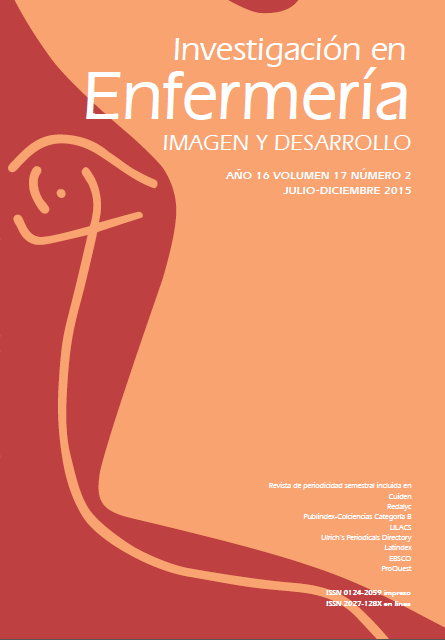Abstract
Breastfeeding is the ideal way to give children the nutrients needed for proper growth and development; however, many factors disrupt this practice, including the phenomenon known as early weaning. Objective: To identify what factors contribute to early weaning in a group of mothers of children enrolled in a program of growth and development of a health center in Santa Marta, Colombia. Materials and methods: descriptive, cross-sectional, quantitative study. The sample was comprised by 54 mothers with children less than or equal to 24 months chose from a total of 372 mothers, they were intentionally selected to complete the sample. The information was collected using a questionnaire designed by the researchers, using expert judgment and previous pilot. Results: 94.22% exclusively breastfed their children; while 5.77% did not. Factors that influenced the suspension of breastfeeding were lack of time (36.54%), insufficient milk production (23.06%), refusal of baby to breastfeeding (17.51%), Mother's own decision (15.38%) and family influence (7.69%). Conclusion: social factors generally influence early weaning; but the change is related to cultural aspects rooted as common practices and everyday habits. It is therefore necessary that educational and health institutions continue their efforts to transform that which affects the welfare and health of diverse populations.
The journal Investigación en Enfermería: Imagen y Desarrollo is registered under a Creative Commons Attribution 4.0 International Public License. Thus, this work may be reproduced, distributed, and publicly shared in digital format, as long as the names of the authors and Pontificia Universidad Javeriana are acknowledged. Others are allowed to quote, adapt, transform, auto-archive, republish, and create based on this material, for any purpose (even commercial ones), provided the authorship is duly acknowledged, a link to the original work is provided, and it is specified if changes have been made. Pontificia Universidad Javeriana does not hold the rights of published works and the authors are solely responsible for the contents of their works; they keep the moral, intellectual, privacy, and publicity rights.
Approving the intervention of the work (review, copy-editing, translation, layout) and the following outreach, are granted through an use license and not through an assignment of rights. This means the journal and Pontificia Universidad Javeriana cannot be held responsible for any ethical malpractice by the authors. As a consequence of the protection granted by the use license, the journal is not required to publish recantations or modify information already published, unless the errata stems from the editorial management process. Publishing contents in this journal does not generate royalties for contributors.


